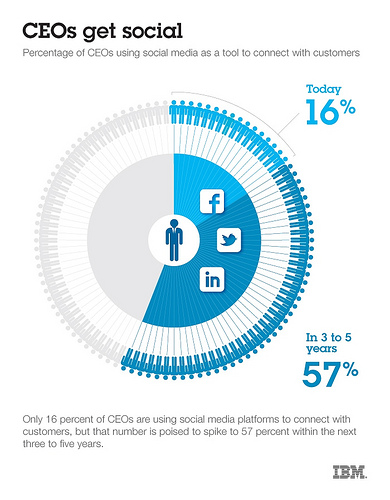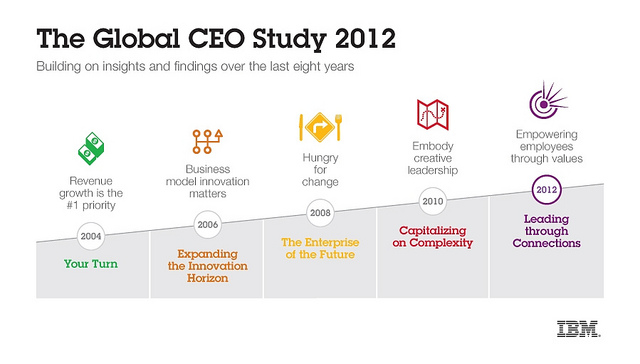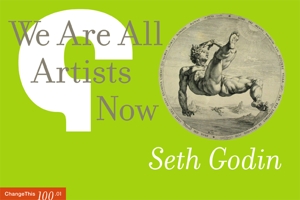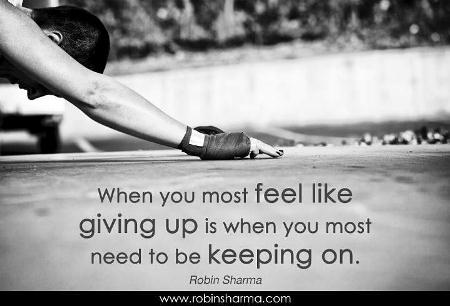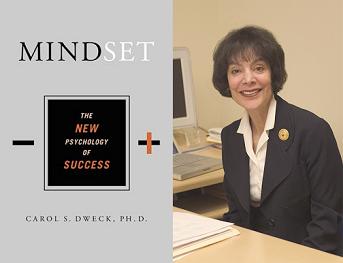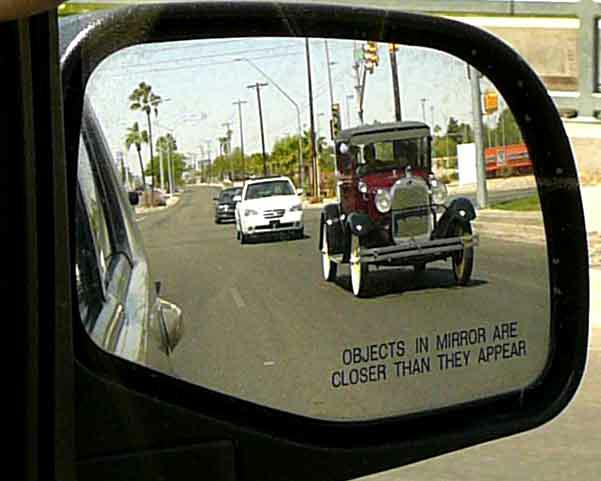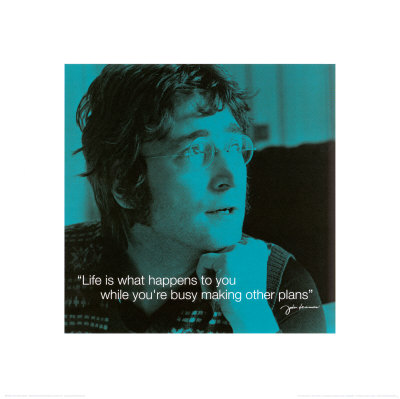The latest IBM CEO study gives some interesting insights into how CEO’s role and priorities change over time. In 2012, this study of more than 1,700 CEOs came with 3 strong topics:
- For Employees: Empowering Employees through Values
- For Customers: Engaging Customers as Individuals
- Amplifying Innovation through partnerships
The study highlights that now at last CEOs of large corporations see that investing in internal social networks (for collaboration) and external social networks (for engaging customers) is mandatory.
One conclusion of the study is “As CEOs ratchet up the level of openness within their organizations, they are developing collaborative environments where employees are
encouraged to speak up, exercise personal initiative, connect with fellow
collaborators, and innovate“.
While only 16% of them do it now, in 3 years time it is expected that a majority of them will get on external social networks:
It is interesting to note how the focus of CEO’s changed in the past decade or so
We can see how the focus changed from revenue growth to change, accounting for complexity and leveraging on employees. This looks like the trajectory of the Fourth Revolution revealed! It is clear that CEOs are “abandoning command and control” (link to an excellent paper by Alexandra Levit) to more collaborative ways of working. This Forbes article “If you don’t have a social CEO you are going to be less competitive” is also a great reference on the IBM study.
There is obviously a big limit to this study: it only considers corporations. When will the corporations feel that they might not be the best value-producing form of organization? When will IBM also study what happens in other organizations? Already today the CEOs need to be much more entrepreneurial. This trend will only further develop and grow. I’m already looking forward to the next studies!
